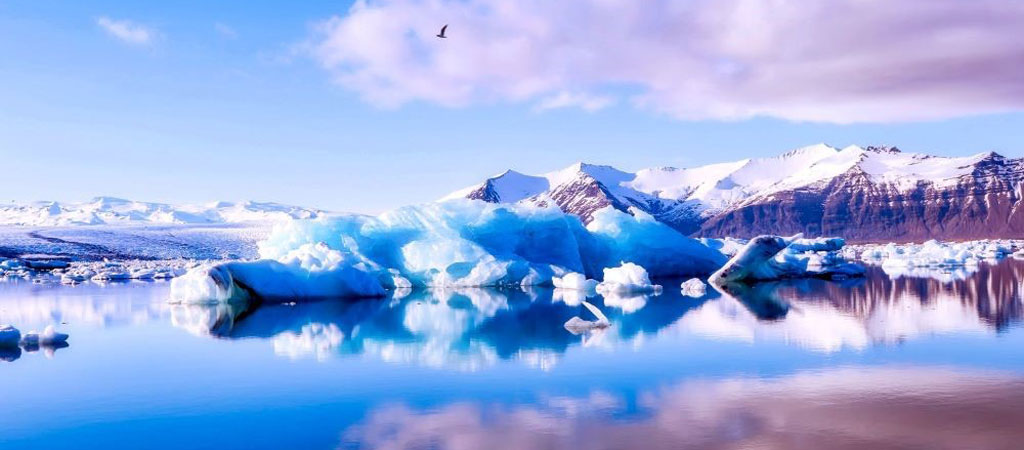THE LAND OF ICE AND FIRE – AND FAIR PAY
HOW ICELAND BECAME THE WORLD LEADER IN FAIR PAY
Against a stunning backdrop of volcanoes and glaciers, where elves and trolls are said to wander, Iceland has made extraordinary headway in its journey to Planet Fair. The landmark fair pay certification scheme passed in 2018 is no alchemy; rather, it is a carefully curated piece of legislation that has set a global precedent. But how does the Equal Pay Standard impact businesses? And is the gap any smaller?
“Though she may be little, she is fierce.”
It is not an exaggeration to claim that this tiny island nation is the world leader in fair pay (followed closely by Norway). As of 2018, Iceland was ranked by the World Economic Forum as the most gender-equal country on the planet. It also continues to be the fastest-improving country in the world in terms of these indicators; between 2008 and 2017, for example, the country managed to reduce its gender pay gap by 5 whole percentage points.
The Icelandic labor market has nearly reached gender parity as well, with 79% of women and 86% of men as active participants. Women tend to be drawn to public and service sectors, and men to technology and agricultural industries. This occupational segregation may explain why the Icelandic pay gap persists despite stringent measures to correct it. But there are promising trends afoot: Tech courses at Reykjavík University have seen a 30% increase in enrollment by women over the past three years, and 90% of fathers have been taking paternity leave following an equalizing legislative reform in 2000.
Fairness, Certified!
It’s no wonder Iceland has covered such impressive ground. The voyage to Planet Fair began as early as 1961 when the first legislation mandating equal pay for women and men was passed. This was followed by the more comprehensive Equality Act in 1976, which stipulated that women and men must be paid the same for work of equal value.
But the 2017 expansion of the 2008 updated Equality Act is what produced real momentum. Article 19 introduced the Equal Pay Standard, developed jointly by the Icelandic government, employers, and trade unions. Modeled according to ISO standards 9001 and 14001, the Standard provides the basis for an audit and certification scheme for all companies with more than 25 staff, no matter the sector or composition of the firm in question. Any entity that fails to comply must pay a fine for every day it remains uncertified. Businesses that don’t play fair are now paying for it, and those who do are rewarded with the right to display the Equal Pay Symbol. And as certifications must be renewed every three years, business leaders and workers alike can be sure that a fair income continues to be accessible to everybody. What’s more, the Center for Gender Equality maintains a register of both companies with and without certification.
Rather than opting for the type of radical pay transparency that neighboring Norway employs, where an individual can look up the income of whomever she wishes, Iceland places the process of ensuring fair pay in the hands of companies themselves. The certification scheme not only puts financial pressure on managers to implement fair pay practices, but it also benefits businesses that already do so, in that they will attract far more potential staff and conscious consumers.
The road ahead
It is no small feat that this country whose population totals less than 400,000 has managed to make such strides toward fair pay. And it is becoming increasingly easier for businesses to gain more ground, what with the myriad new pay analysis software available, such as PayAnalytics. Moreover, the Equal Pay Standard sets the legislative stage for other policies that belong to Planet Fair, including flexible and alternative work schedules, on-site childcare, etc.
While some specialists are concerned about the limitations that the Equal Pay Standard may place on opportunities for pay rises, others continue to attest that Iceland is the best place in the world to work as a woman and as a man.
What’s more, the Nordic Council of Ministers, which represents Denmark, Finland, Iceland, Norway, Sweden, the Faroe Islands, Greenland, and Åland, is to adopt the Standard for their entire Nordic economic area. The Nordic Welfare Committee also proposed introducing a common Nordic equal pay certificate while working toward reducing gender segregation in the labor market and in education. This is an encouraging precedent that can point us to the adoption of similar measures within other economically bounded regions.
After all, Planet Fair is open to all of us!
FPI - What we do
Why does the gender pay gap prove so intractable? What is standing in the way of fair pay for all? What do companies need to do in order to put sustainable pay strategies into practice?
LEARN MORE
Companies
Knowing about the pay gap and being willing to rid the world of the unjust state of affairs are evidently not enough to actually ensure fair pay. It is right here ...
LEARN MORE
Best Practice wanted
We are firmly convinced that pay equity could be possible tomorrow – if everyone wanted it. That is demonstrated by those companies where things are already fair(er).
LEARN MORE



